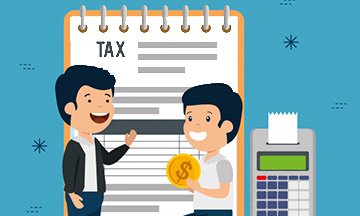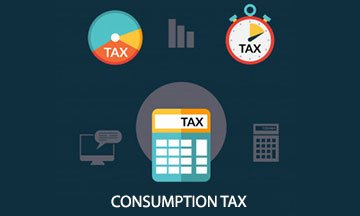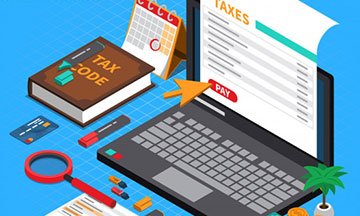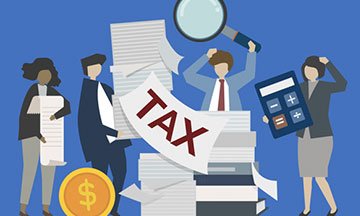Effective Revenue Collection Strategies
| Date | Venue | Duration | Fees | |
|---|---|---|---|---|
| 06 May - 17 May, 2024 | Dubai | 10 Days | $8775 | Register |
| 10 Jun - 14 Jun, 2024 | Dubai | 5 Days | $4750 | Register |
| 08 Jul - 12 Jul, 2024 | Dubai | 5 Days | $4750 | Register |
| 26 Aug - 30 Aug, 2024 | New York | 5 Days | $5695 | Register |
| 26 Aug - 30 Aug, 2024 | Dubai | 5 Days | $4750 | Register |
| 16 Sep - 20 Sep, 2024 | Dubai | 5 Days | $4750 | Register |
| 21 Oct - 25 Oct, 2024 | Dubai | 5 Days | $4750 | Register |
| 04 Nov - 15 Nov, 2024 | Barcelona | 10 Days | $9850 | Register |
| 25 Nov - 29 Nov, 2024 | Dubai | 5 Days | $4750 | Register |
| 16 Dec - 20 Dec, 2024 | Dubai | 5 Days | $4750 | Register |
Course Overview
What is Revenue Collection? Revenue collection in general terms relates to a government agency’s actions to collect outstanding financial obligations from the public. Revenue may come from a variety of sources such as taxes, license fees, fines or use of state facilities. Revenue collection is also the general and broad collection of revenue for debts owed or owed revenue by persons or businesses.
Why is revenue collection important? All governments need to have effective revenue collection strategies in place to make sure sufficient cash is made available to pay operational costs. It is a best practice to review all points of revenue collection as well as to have policies and ordinances in place annually.
This Zoe Course will empower participants on general collection of revenue for debts owed or owed revenue by persons or businesses. This will also cover topics on revenue collection like the assessment of billing of taxes and other revenues, accounting, internal controls and auditing, collecting and processing taxes, other revenues and enforcement of revenue collections. Learn the principles employed to boost staff morale and encourage taxpayer participation.
Course Objectives
On successful completion of Effective Revenue Collection Strategies Course, participants shall be able to:
- Know the relevant changes in the new revenue collection guidance
- Familiarize the technical aspects of the principal steps of revenue collection in the new standards
- Learn the implications of “rules-based” and “principles-based” revenue collection standards
Training Methodology
This collaborative Effective Revenue Collection Strategies Course, will comprise the following training methods:
- Lectures
- Seminars & Presentations
- Group Discussions
- Assignments
- Case Studies & Functional Exercises
Zoe Talent Solutions follows ‘Do-Review-Learn-Apply’ model.
Organisational Benefits
On successful completion of the Effective Revenue Collection Strategies Course, participants shall be able to benefit their organization in the following ways:
- Make better decisions through data-driven insights
- Redefine business processes with taxpayers at the centre
- Generate a 360-degree view of taxpayer needs and behaviours
Personal Benefits
Successful completion of Effective Revenue Collection Strategies Course, shall benefit participants in the following ways:
- Predict taxpayers at risk of default
- Empower proactive, personalized payment plans and support for taxpayers to better manage their financial obligations
- Realise and implement targeted campaigns to reduce levels of debt
Who Should Attend?
This Effective Revenue Collection Strategies Course would be suitable for:
- Accountants
- Tax advisers
- General tax practitioners
- Tax practitioners in advisory firms
- Tax specialists in commercial and trade industries
- Government officials
- Government agencies
- In-house tax directors/managers
- Tax regulation bodies
Course Outline
Module 1: Introduction
- Introduction to revenue collection
- Need to maximize tax revenue
- OECD Guidelines
- Fiscal Policy
- Revenue collection in relation to GDP
- Ratio of GDP to tax – some statistics
- Develop/ developing countries
- Confidence in Government
- Government Spending
- Federal v/s State Tax
Module 2: Types of Revenue
- Income Tax
- Corporate Tax
- VAT / Sales Tax
- Custom Duty
- Excise Duty
- Others
Module 3: Increasing the Tax Base
- Mandatory Registration for VAT/ Sales Tax
- Encouragement of Self-Assessment
- Fair & efficient refund system
- Effective communication with taxpayers
- Simplify Taxation system
MODULE 4: Other Indirect Methods
- Linking Tax Payments with other transactions
- Use of Internet/ Mobile
- Matching Sales Tax with Sales/ Purchases
- Introduction of Turnover / Fixed Taxation
Module 5: Budget
- Budget Formulation
- Stakeholders in budget exercise
- Budget implementation
Module 6: Role of Federal Tax Authority
- Reforms in Taxation system
- Minimize Exemptions
- Large Taxpayer unit
- Introduction of Advance Tax
- Closing loopholes
- Minimize corruption
- Efficient M.I.S. System
- Performance Analysis
- Accurate / Timely Information
Module 7: Governance in Tax Departments
- Improved Governance
- Composition of Efficient Board of Directors/ Governance
- Inducting Independent Directors / Professionals
- Consequences of bad governance
Module 8: Importance of Internal checks
- Necessity of Internal controls
- Effective Internal Checks
- Efficient Audit system
- Role of Internal Auditor
Module 9: Case Study
- O.F. UAE











